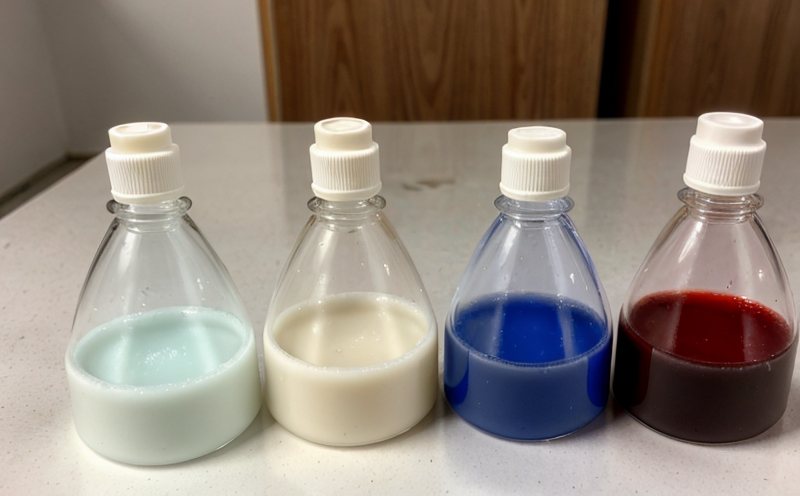When it comes to packaging materials, ensuring the safety and integrity of the product is paramount. Packaging films used in food packaging, pharmaceuticals, and other sensitive applications must be free from harmful substances that could contaminate products during storage or transport. One critical aspect of this is the presence of monomer residues. Monomers are the building blocks of polymers, which make up many types of plastics and resins. However, not all monomers are stable in finished products, and some may remain as residues, potentially causing issues if they migrate into the packaged goods.
Monomer residue testing is a specialized service that ensures these harmful substances do not contaminate the final product. This test is particularly important for films used in food packaging, medical devices, and other sectors where contamination can have severe consequences. The process involves analyzing the film to identify any residual monomers that may have been present during production. These residues could originate from incomplete polymerization or inadequate processing steps.
The testing methodology typically follows international standards such as ASTM D7231, which outlines procedures for determining volatile organic compounds (VOCs) and other potentially harmful substances in films used for packaging food products. The test is designed to ensure that the film meets regulatory requirements and industry best practices, thereby protecting both consumers and manufacturers.
At Eurolab, our team of experts ensures that every sample is handled with care and precision. We use advanced instrumentation like GC-MS (Gas Chromatography-Mass Spectrometry) to identify even trace amounts of monomers. This technology allows us to detect the presence of specific compounds down to parts per billion levels. Our laboratory adheres strictly to ISO/IEC 17025, ensuring that our results are accurate and reliable.
The importance of this testing cannot be overstated. Inadequate testing can lead to recalls and reputational damage for manufacturers. Moreover, it can result in legal action if harmful residues are found to have entered the supply chain. By partnering with Eurolab, companies can avoid these pitfalls and ensure that their products meet stringent quality standards.
Our services extend beyond just the detection of monomer residues. We also provide detailed reports that outline our findings and recommendations for improvement. This helps manufacturers understand where potential issues lie and how they can address them proactively. Additionally, we offer training sessions to help your team understand the importance of these tests and how best to implement them in-house.
Understanding the chemical composition of packaging films is crucial not only for compliance but also for innovation. By knowing exactly what components are present in each film, manufacturers can make informed decisions about material selection and formulation adjustments. This knowledge enables continuous improvement processes aimed at creating safer, more efficient packaging solutions.
Why It Matters
The presence of monomer residues in packaging films is a critical concern for several reasons. Firstly, these residues can migrate from the film into the packaged goods, posing health risks to consumers if ingested or inhaled. Secondly, certain monomers may interact with other ingredients in food products or pharmaceuticals, potentially altering their properties or effectiveness. Lastly, regulatory bodies worldwide impose strict limits on the allowable levels of monomer residues due to concerns over environmental impact and public safety.
From a business perspective, avoiding contamination incidents is essential for maintaining customer trust and brand reputation. Recalls due to unsafe packaging can be costly both financially and reputationally. Compliance with stringent regulations also helps companies avoid legal penalties and fines associated with non-compliance. Additionally, ensuring that all materials meet required standards can open up new markets and opportunities for growth.
For research and development teams, understanding the full chemical profile of packaging films allows them to innovate more effectively while staying within safety guidelines. This knowledge enables the creation of safer products without compromising functionality or aesthetics. It also supports efforts towards sustainable manufacturing practices by identifying ways to reduce waste and improve energy efficiency throughout the production process.
Eurolab Advantages
At Eurolab, we pride ourselves on offering world-class testing services tailored specifically for your needs. Our state-of-the-art facilities equipped with cutting-edge technology ensure that every sample receives meticulous attention from start to finish. From sample preparation through analysis and reporting, our team follows rigorous protocols designed to deliver accurate results time after time.
We employ highly skilled chemists who stay current on the latest developments in analytical techniques so they can provide you with the most relevant information possible. Our commitment to excellence extends beyond just technical proficiency; we also value strong communication skills, ensuring that clients receive clear explanations of complex findings along with actionable insights based on our discoveries.
Another key advantage offered by Eurolab lies in our ability to offer comprehensive support services beyond mere testing. For instance, if you encounter issues during your quality assurance process, our technical experts can assist in diagnosing problems and suggesting solutions. We also provide consulting services aimed at helping clients optimize their manufacturing processes for better outcomes.
Moreover, Eurolab maintains ISO/IEC 17025 accreditation, which guarantees that all our tests adhere to internationally recognized standards. This certification assures customers that they are receiving high-quality results consistently across multiple projects or batches. Furthermore, our adherence to confidentiality agreements ensures that sensitive business information remains secure throughout the testing lifecycle.





